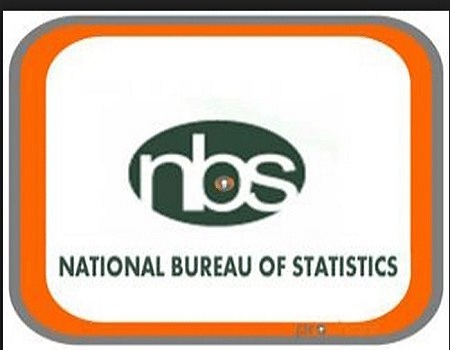AS inflation rate continues to rise in Nigeria, sellers of food items and cement in the Federal Capital Territory (FCT), Abuja, have reacted by increasing the prices of their commodities.
A market survey conducted on Friday by the Saturday Tribune shows that a measure (modu) of white garri is sold for N800 from N600, while that of red garri goes for N1000 from N800 per “modu” in Kuje and Goza markets.
Similarly, in the same markets, a small portion of tomatoes that used to cost N200 per pan is now sold for N300, while pepper is sold from N100 upwards.
A trader, Mrs. Faidat Musa, who spoke to the Saturday Tribune attributed the increases to the rising cost of the food items from the wholesalers they purchased the commodities.
“Anytime we go to the market to buy the food items from the wholesalers, they always review the prices upwards with the explanation that the farmers sold to them at higher prices”, Mrs. Musa said.
Alhaji Abdul Mustapha said the farmers he usually purchases food items from were complaining of insecurity and high cost of transportation to bring them from the farm to the market.
“My customers told me that they sparingly go to their farms due to the high level of insecurity, and when they do, it costs them a fortune to transport the commodities to the market,” Alhaji Mustapha stated.
Apart from the high cost of food items, the price of cement has also gone up as a 50 kilograms bag sells for between N10,000 and N15,000.
A market survey conducted on Friday by an online media in Gwarimpa, Area 10, Kubwa, Lugbe and Dawaki showed that a 50kg bag of Dangote cement sold for N10,000 and BUA cement stood at N15,000.
The National Bureau of Statistics (NBS) on Thursday reported that the Inflation rate in Nigeria rose to 29.90 percent in January 2024 from 28.92 percent recorded in December 2024.
The NBS put food inflation rate in January 2024 at 35.41 percent on a year-on-year basis, indicating 11.10 percent points higher compared to the rate of 24.32 percent recorded in January 2023.
This means that in January 2024, the rate of increase in the average price level is more than the rate of increase in the average price level in December 2023.
The NBS explained that the rise in Food inflation on a year-on-year basis was caused by increases in prices of Bread and cereals, Potatoes, Yam and other Tubers, Oil and fat, Fish, Meat, Fruit, Coffee, Tea, and Cocoa.
“On a month-on-month basis, the Food inflation rate in January 2024 was 3.21 percent, this was 0.49 percent higher compared to the 2.72 percent rate recorded in December 2023.
“The rise in the food inflation on a Month-on-Month basis was caused by a rise in the rate of increase in the average prices of Potatoes, Yam & Other Tubers, Bread and Cereals, Fish, Meat, Tobacco, and Vegetable.
“The average annual rate of Food inflation for the twelve months ending January 2024 over the previous twelve-month average was 28.91 percent, which was a 7.38 percent points increase from the average annual rate of 21.53 percent change recorded in January 2023,” the NBS stated.
The NBS reported that in January 2024, Food inflation on a Year-on-Year basis was highest in Kogi with 44.18 percent; Kwara 40.87 percent, and Rivers 40.08 percent, while Bauchi recorded 28.83 percent; Adamawa 29.80 percent, and Kano recorded 30.08 percent, the slowest rise in Food inflation on Year-on-Year basis.
It further noted that on a Month-on-Month basis, however, January 2024 Food inflation was highest in Ondo with 4.69 percent, Osun had
4.59 percent, and Edo 4.58 percent, while Bayelsa recorded 0.24 percent, Yobe 0.97 percent and Ogun 1.44 percent recorded the slowest rise in food inflation on Month-on-Month basis.
